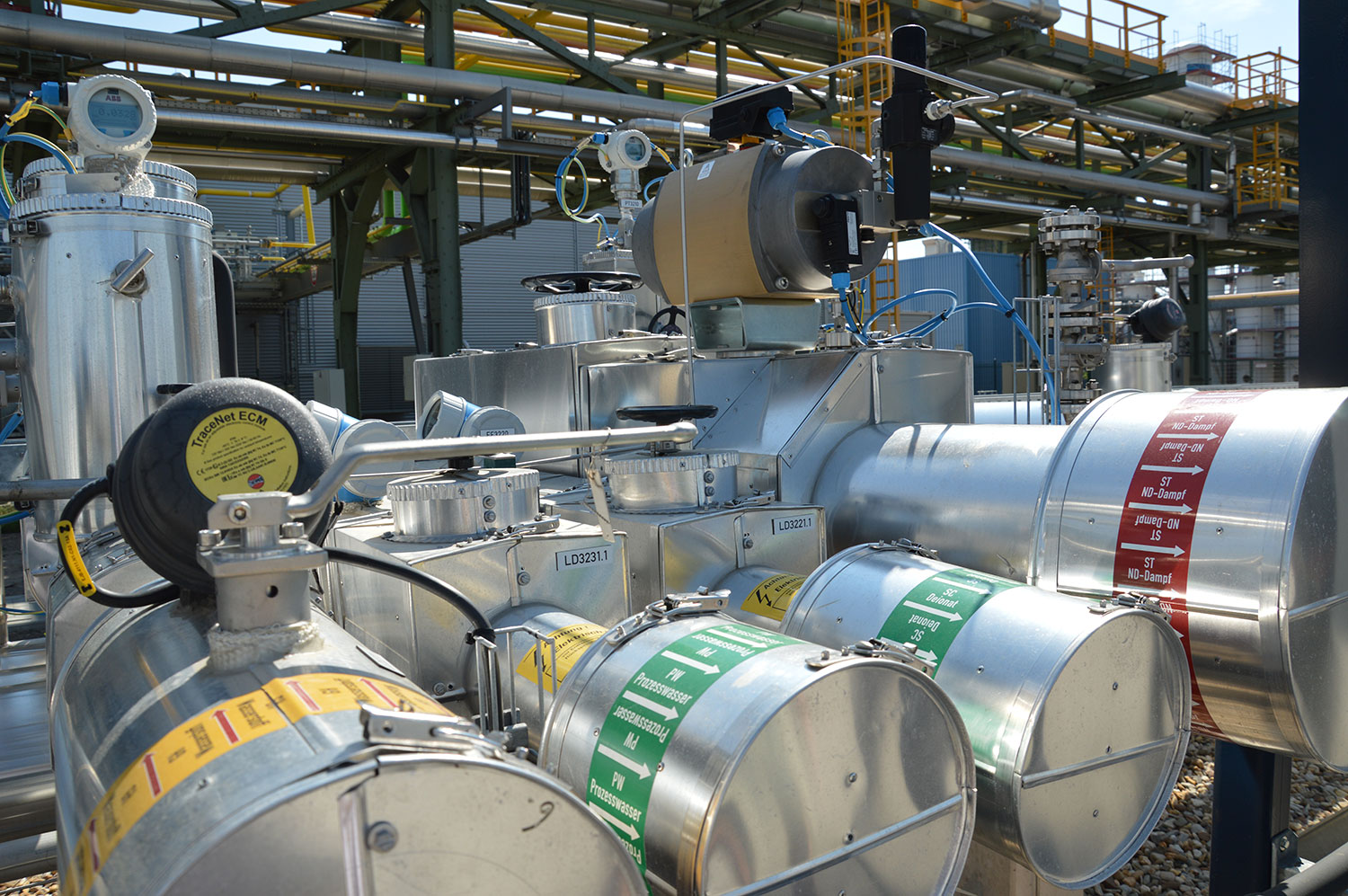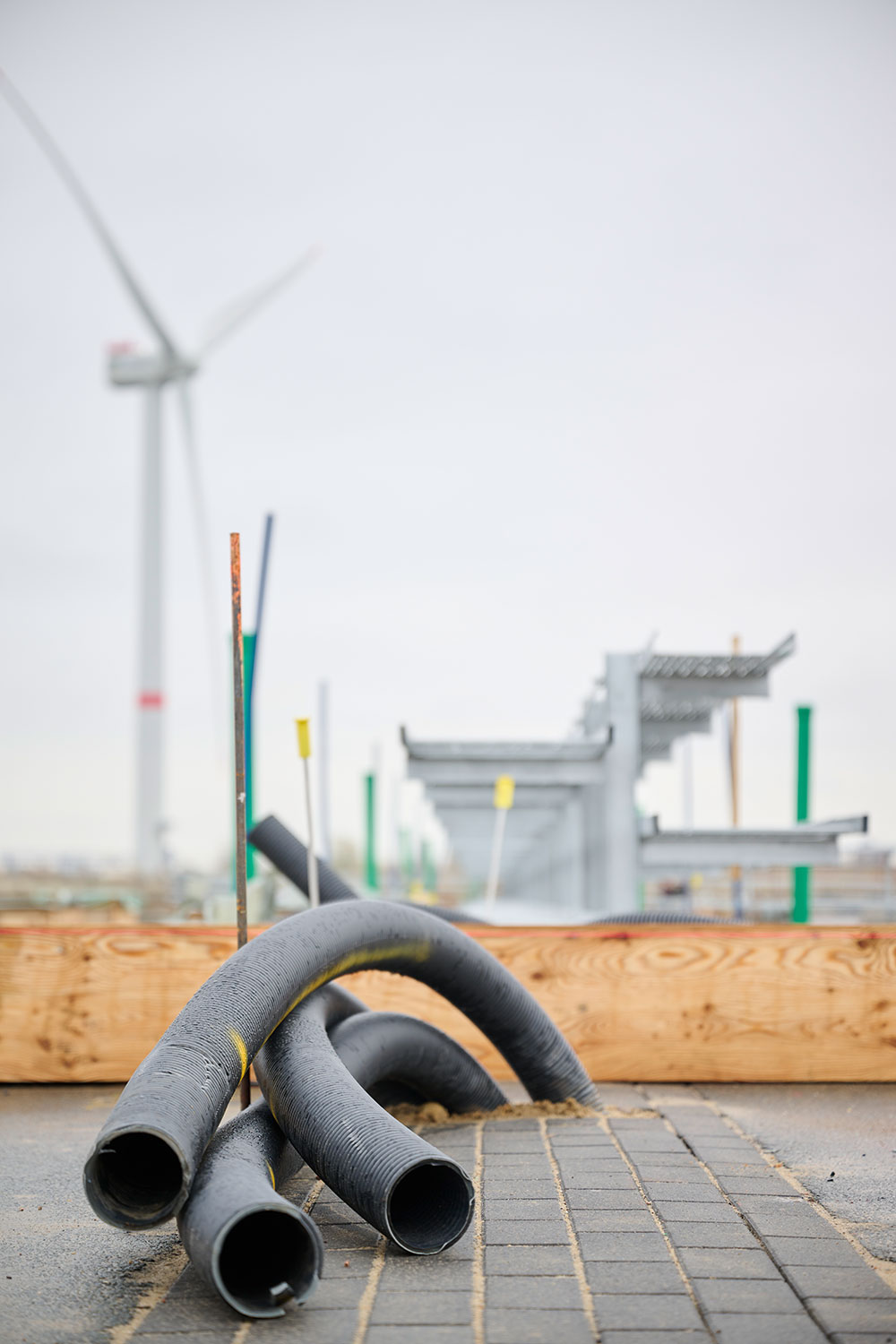Fraunhofer IWES is currently operating or building three hydrogen laboratories, which for the first time offer a digitally networked infrastructure, including test and qualification capacities for the necessary electrolysis and fuel cell systems with an output of over 25 megawatts (MW). These labs fulfill the same basic demands, but also offer specialized services. This creates a globally unique range of pilot plants along the entire value chain of the hydrogen economy.
Certification and standardization
Numerous national and international standardization activities (e.g. ISO 22734, VDI 4635) are already underway, involving Fraunhofer institutes with expertise in the standardization of hydrogen technologies and, in particular, electrolyzers. A prerequisite for the accelerated and sustainable expansion of electrolyzer capacities for (green) hydrogen production is a broad trust in this technology and its reliability by market players on the application side (project developers, investors and end-users). This can be achieved through widely recognized or standardized test protocols and procedures to evaluate the performance and durability of electrolyzers under representative conditions for current and future applications.
Development of standardized testing processes and validation of product performance data
The integrated system test environments in the Hydrogen Lab Bremerhaven, Hydrogen Lab Leuna and Hydrogen Lab Görlitz, in which performance and stress tests for electrolyzers can be carried out under realistic, dynamic operating conditions, enable both the development of standardized test processes and the validation of product performance data based on these standards. System tests are supplemented by tests at cell, (short) stack and subsystem level, to support both electrolyzer OEMs and the supplier industry. Fraunhofer IWES combines unique knowledge of the characteristics of energy generation from wind turbines with insights into the demands that will be placed on large-scale electrolyzers in the future. While a path toward standardization is slowly emerging, no consistent process has yet been established for system certification of hydrogen technologies at the product level. Fraunhofer IWES is drawing on its many years of proven experience in the field of wind turbine technology as a form of blueprint for hydrogen technologies. Of course, a system certification (e.g. for electrolyzers) will ideally reference existing and established technology and product standards in its defined process descriptions.
Hydrogen Lab Leuna – Direct connection to the chemical industry
In the Hydrogen Lab Leuna (HLL), every type of industrial-scale electrolyzer – PEM, AEL, AEM or SOEC – can be tested in continuous operation 24/7. In these tests, dynamic load profiles can be simulated for operation with electricity from photovoltaic and wind energy systems, in order to investigate performance, economic efficiency and long-term behavior in real operation and in accelerated aging tests. This data will provide the basis for future certification. The HLL is one of the few existing large test facilities in which electrolysis systems in the megawatt range can be operated in test mode for periods of weeks and months. A unique feature is that the hydrogen produced is fed into the Leuna Chemical Park's hydrogen pipeline. The hydrogen can also be used in collaboration with Fraunhofer CBP and other research partners on site for the sustainable synthesis of chemical precursors and fuels. The integration of the HLL into the Leuna chemical site and its network means that innovative sector coupling processes can be demonstrated on a pilot scale directly at the chemical industrial site, and tested under realistic conditions. The laboratory is funded by the state of Saxony-Anhalt and by the EU.


